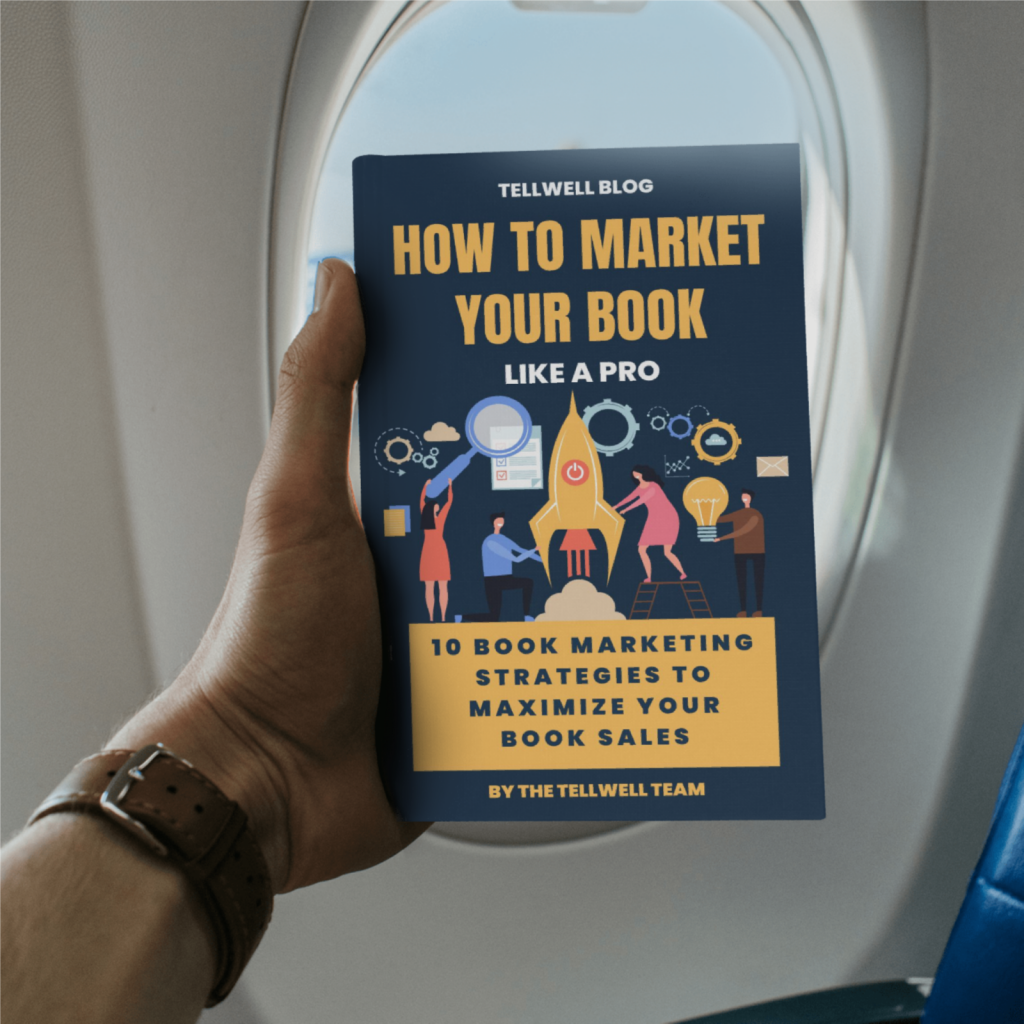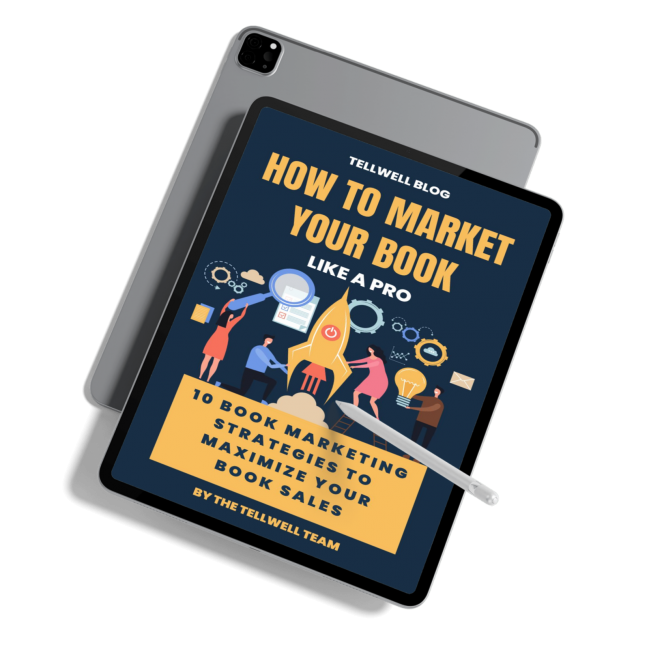10 book marketing strategies to maximize your book sales
Promoting your original book (fiction or non-fiction) begins with understanding your unique value proposition.
- What will a reader get from your book? Is it entertainment? Specific knowledge or insight?
- Why should they purchase your book over others on the market? Is your story funnier or more romantic? Or can your combined experience and education help a reader’s business grow while teaching them a new skill?

Why it’s Important
Understanding what sets your book apart and why it appeals to specific audiences allows you to craft effective pitches and taglines and develop your overall book marketing strategy with your audience in mind. This knowledge allows you to build a great book with a strong foundation and the opportunity to create an exciting brand.
Some of our tried-and-true marketing tips for authors are outlined below. By understanding these aspects of book marketing, you can better position yourself for greater visibility in the public eye thereby increasing your opportunity for higher sales. You don’t have to be a jack of all trades either; you can hire out for some (or all) of these marketing activities by investing in book marketing services!
Tellwell Team

1.) Design A Great Cover
A great cover is essential for any book, as it is the first impression a potential reader will get of the story. A well-designed cover can capture the essence of the story and create intrigue for your audience, making a reader want to learn more. It can also help the book stand out on a store shelf amongst competition.
2.) Ensure Your Book Is Professionally Edited
Working with an editor ensures that your book is free from typos, grammatical errors, and other mistakes that can detract from the reader’s experience. You want them focused on your content, not what’s wrong with it. A professionally edited book is also more likely to receive positive reviews, which are essential for selling books because they help build trust with potential readers. Good reviews also help to boost the book’s visibility online, making it easier for readers to find it.
3.) Set Up an Author Website
You can use your website to showcase your book, highlight reviews, and promote events related to your book. Additionally, an author website can help you connect with other authors and industry professionals and provide an easy way for people to find and purchase your book.
4.) Take A Great Author Headshot
Great author headshots help sell books by creating a public persona for an author. A good headshot can show an author’s personality and give readers an idea of who they are. It can also help build an emotional connection with potential readers, making them more likely to buy the book. Additionally, a high-quality headshot will help match the professional quality of your book. You don’t want a high-quality book with an amazing cover to be diminished by a lousy headshot.
5.) Gather Blurbs from Your Book
Blurbs help sell a book by providing potential readers with a short yet enticing overview of the content. They are often found on the book’s cover or the bookseller’s website. If potential readers understand a book’s concept and why it is worth reading, they are more likely to purchase it.
6.) Stack Reviews on Amazon
Amazon reviews can help to sell a book by providing potential readers with an understanding of what other people think of the book. Positive reviews provide social proof and encourage shoppers to purchase the book. On the other hand, negative reviews can help authors and publishers to identify what changes can help improve the book. Reviews can also help increase the visibility of the book and make it more likely to be discovered by potential readers through Amazon’s algorithms.
7.) Add The Book to Your Email Signature
Adding your book to your email signature is important because everyone who communicates with you via email will see your book. The signature also provides an opportunity to link to your author website or other online book retailers, making it easier for readers to purchase your book.
8.) Get Featured in Blogs & Podcasts
When authors get featured in blogs or podcasts it gives them the opportunity to share their insights, experiences, and expertise with new audiences. This can help establish an author’s credibility, creating an environment where potential buyers are more likely to purchase their books. Additionally, authors can use their own blogs and podcasts to promote their books, providing potential buyers with a more detailed look at their work and increasing the likelihood that they will purchase it.
9.) Use Your Mailing List
Authors often use email lists to offer freebies such as a PDF version of a previous books, discount codes, or a free sample chapter to entice readers. Monthly newsletters provide updates, excerpts, reviews, promotions, and special offers. Author’s also use their mailing lists to introduce up-and-coming books.
10.) Use Social Media
Social media has undeniably changed the way authors market and sell their books. With the rise of platforms like Twitter, Instagram, and Facebook, authors can find potential readers without getting off of the couch. These platforms provide authors with unparalleled access to their target audience. Platforms like Twitter, for example, allow authors to connect with their followers through the use of hashtags and direct messaging. By engaging with their followers, authors can create relationships and build trust with potential readers. This engagement can also lead to increased brand recognition and, ultimately, more book sales. In addition to traditional forms of book promotion, authors can also use social media to launch giveaways, Q&As, and more.

When it comes to optimizing your book marketing tactics to increase your book sales, be sure to create a strong foundation by identifying your unique value proposition and the audience you wish to target. Once you have zeroed in on who your audience is, use social media, your author website, reviews, and professional editors and designers to ensure you connect with them in the right way to create an impactful impression that sells.


